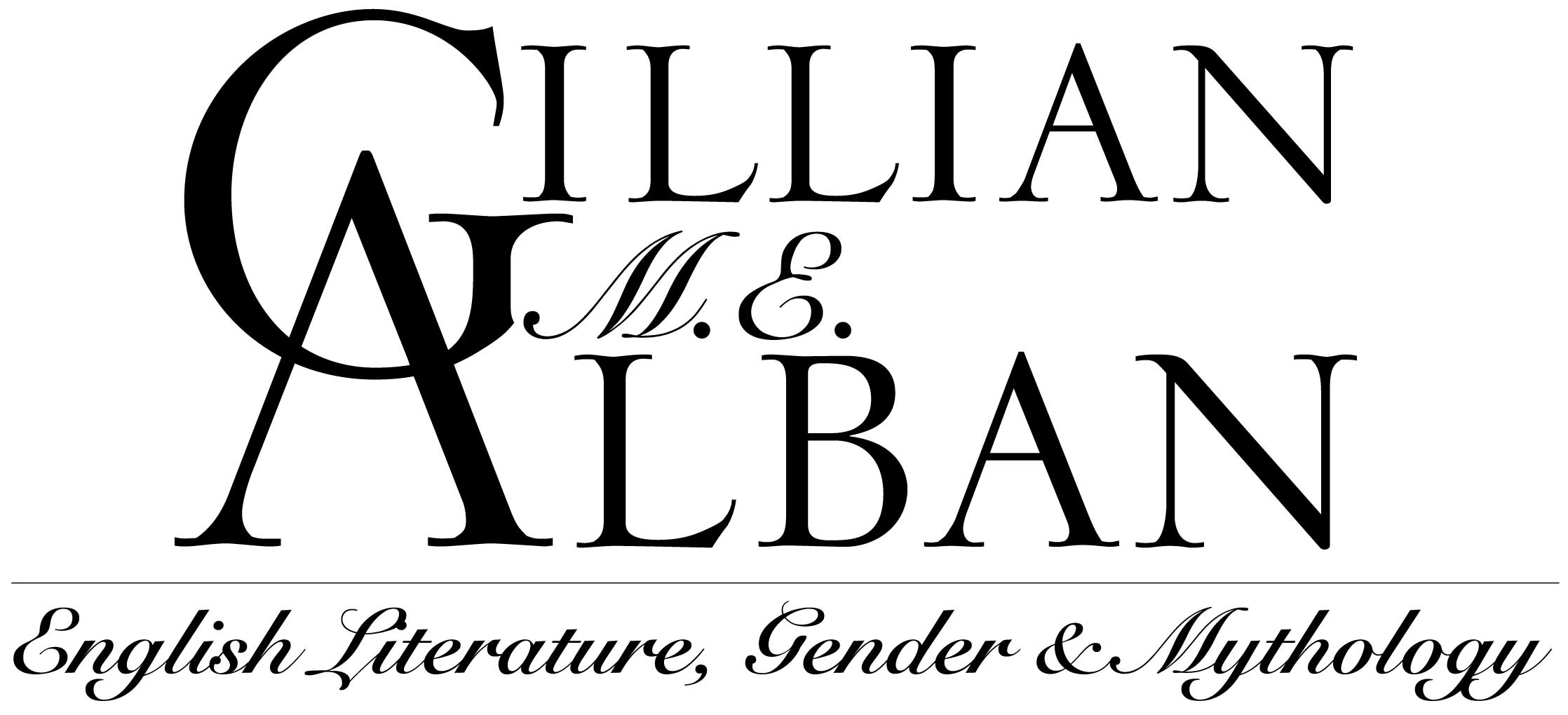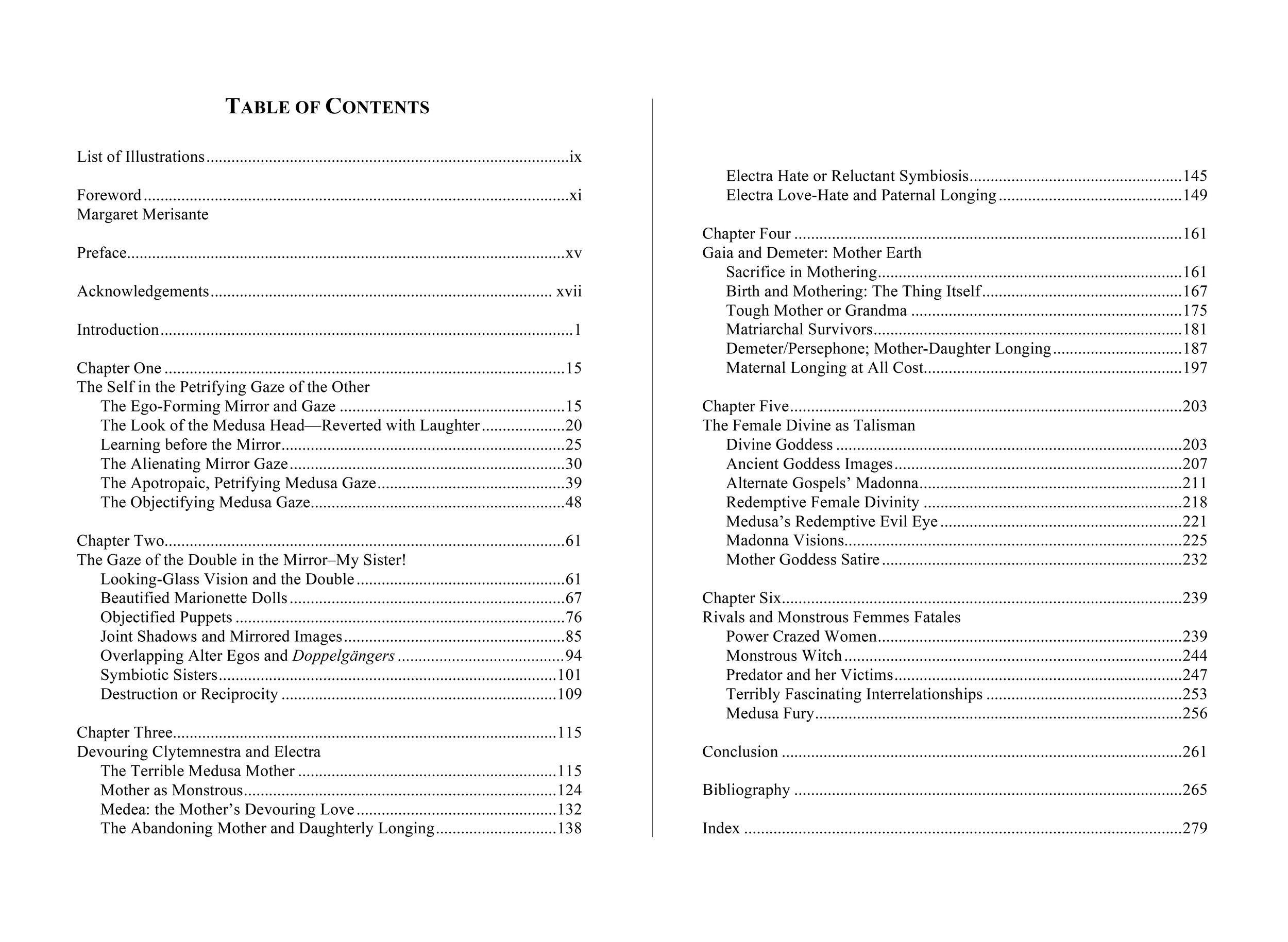The Medusa Gaze in Contemporary Women's Fiction: Petrifying, Maternal, Redemptive
Gillian M.E. Alban, ©2017 Cambridge Scholars Publishing
THIS BOOK probes the narratives of impressive contemporary novelists, offering striking insights into the desires and frustrations of women. Crafting her analysis on the gaze as presented by Lacan and Sartre, Alban illuminates women’s power and vulnerability as they construct their own egos in opposition to their alter egos or hostile others in the mirrors facing them. The first two mirroring chapters trace the women stalking its pages under a panoptic gaze, as they learn how to deflect the menacing gazes of others by staring defiantly back at them. Some win assurance through their own assertive gaze; others are stared down, reduced to psychic trauma, madness and even suicide beneath the demeaning force of the looks of others. These magnetising gazes are turned against the reader to offer insights that take us through a carnival hall of mirrors. Alban shows how such androcentric views as Freud’s perceive the Medusa mother as monstrous, splintering her from her daughters in the Electra syndrome. The efforts of a mother to nurture her children may be criticised as inadequate, with the mother’s nurture condemned as devouring. Alban presents Medusa and other goddess figures as inspirational, repelling evil through the ‘evil eye’ of their powerful gaze or inspirational force; she conversely shows the obverse perspective on women who are condemned as monstrous Gorgons, trapped in enmity, rivalry and rage.
Alban‘s literary analysis illuminates women’s power in the writings of Angela Carter, Toni Morrison, Sylvia Plath, Margaret Atwood, A. S. Byatt, Iris Murdoch, Jeanette Winterson, Jean Rhys and Michèle Roberts. This smorgasbord of authors and their works exemplify English, American and African American, Canadian and Caribbean writing, and include realistic, social narrative and magical realist writings. Together they delve into re-interpretations of narratives, tales of the past and visions of dystopian futures.
“ALBAN’S BOOK...demonstrates how a focus on the various interpretations of what one is tempted to call, in formalist terms, the Medusa function, can be applied to enrich our readings of literary works. In such discussions one may find a woman character who is presented as, for example, a producer of the Medusa gaze, as a “monstrous and terrifying Medusa” (260), or as an “icon of worship” (261). This book introduces, explores and persuasively argues about the significance of the conflicting, troubling, powerful and fascinating Medusa roles of women in modern and contemporary fiction.”
Margaret J-M Sonmez, Middle East Technical University
“...GILLIAN ALBAN once again becomes a multidisciplinary detective who utilizes both a magnifying glass and a telescope to look intently into certain enduring stories that we Westerners have told and continue to tell ourselves. Through the symbols of Medusa and mirrors within the mediums of feminist literary fiction and psychoanalysis, Alban examines the often harsh gaze of the Other toward the self as well as the self toward the Other. Readers will find that her passion as well as her academic knowledge ignites a bright light of feminist analysis within these pages.
...Within this detailed, scholarly, yet accessible investigation of “the power of the gaze” on and by women (which may empower, alienate, protect, or destroy), Alban offers insights gleaned from the novels, short stories, and poetry of several female feminist writers...Chief among these literary selections are many works by Angela Carter (Heroes and Villains, The Sadeian Woman, Nights at the Circus, The Magic Toyshop, The Bloody Chamber, and The Passion of New Eve). Carter specialized in writing original and revised folktales and fairytales, often paired with mythic elements. Additionally, Alban gives the reader a rich smorgasbord of authors who directly reject, adopt, or reframe Medusa’s or the mirror’s gaze. These include Iris Murdoch (A Severed Head, The Time of the Angels); A. S. Byatt (Possession, “Medusa’s Ankles” in The Matisse Stories); Toni Morrison (Beloved, Sula); Jean Rhys (Wide Sargasso Sea); Sylvia Plath (“Medusa,” The Bell Jar, Journals), and Margaret Atwood (Cat’s Eye).
All of these writers engage strongly, smartly, and honestly with the painful social restrictions placed upon women. This particular collection of authors showcase noteworthy female protagonists who struggle to obtain empowerment either against or within patriarchal strictures. As any woman alive can attest, these narratives reflect shared intense yet redeeming struggles toward freedom and agency...As Alban shows us, just to be able to steadily look upon oneself as a Self who determines her own fate may be the most powerful Medusa gaze of all.








